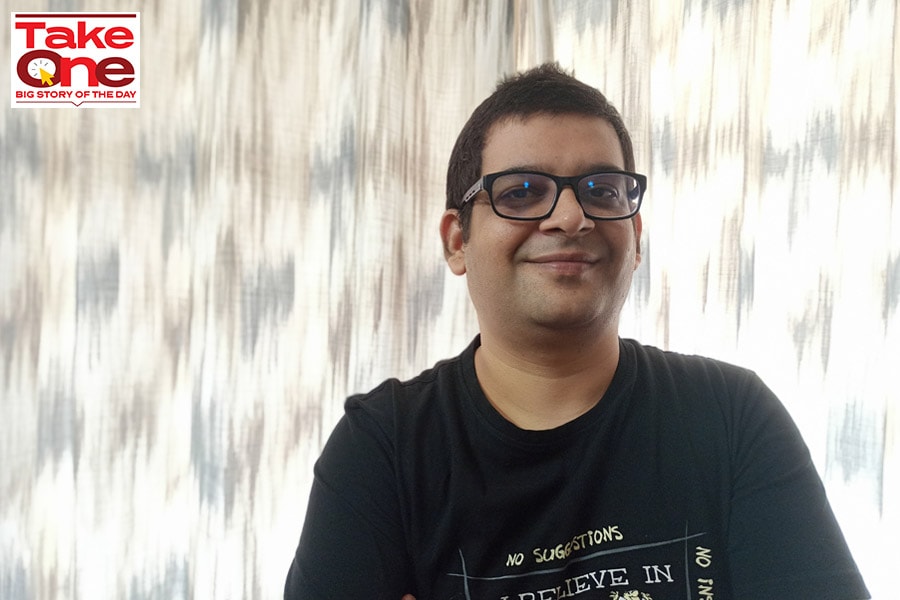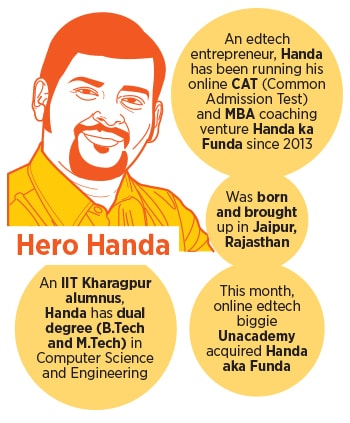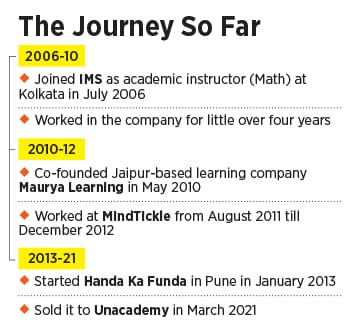
Handa's new Funda: From Academy to Unacademy
How IITian Ravi Handa scaled up his seven-year-old online venture for MBA preparation, and eventually sold it to an edtech major
 Ravi Handa, founder, Handa ka Funda
Ravi Handa, founder, Handa ka Funda
The first thing that strikes you about Ravi Handa is his brutal honesty. A teacher, after all, needs to be upfront. The IITian starts the conversation by making two candid confessions. First, he reveals his weak spot: Computer science. “I was bad at it, and I mean really bad,” smiles the 37-year-old edtech founder of online CAT (common admission test) and MBA coaching venture Handa ka Funda. An IIT-Kharagpur alumnus, Handa has dual degree (BTech and MTech) in computer science and engineering.
Earlier this week, Handa ka Funda was acquired by edtech major Unacademy for an undisclosed amount.
Unlike a fellow IITian—or any other from Handa’s alma mater—who would have traded the prized-engineering tag by joining some fancy multinational company and settling for a hefty pay pack, Handa was the odd one out. Reason: He knew his limitations. “I did not try apart from the campus placement,” he concedes. Poor computer science, he underlines, would have been a major handicap. “Even if I could get a job because of the IIT brand, I was sure I would get fired once they realised I was Jon Snow,” he laughs, alluding to the fictional character in a Game of Thrones.
The second confession is what changed his life: Love for math. He settled for a career in coaching. In short, teaching math. “I loved the subject. I never felt that I was working while teaching math,” he says. Apart from his love for the subject, there was one more overwhelming personality trait that kept him glued to coaching: Laziness. “I am a really lazy person and I liked the idea that it (teaching) wasn't hard work,” he says, explaining why he got hooked to coaching. “It’s a pretty comfortable job to stand in front of a bunch of 40 to 50 graduates, and explain basic math to them, something they already know, but have forgotten,” he smiles.











